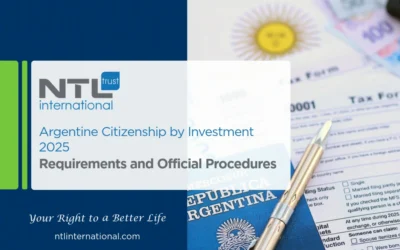
On March 2, 2020, the German government has launched a new regulation of laws regarding qualified professionals wishing to move to Germany for work. In its endeavour to bridge the massive shortage of skilled workers, many of the restrictions that were imposed on those with vocational and non-academic training from non-EU countries were eased.
It has never been easy for foreigners to come to Germany to work. Despite the launching of the Residency by Investment Program in Germany, which targets foreign businessmen who want to start a business in Germany. But for several decades, political leaders insisted on not following immigration policies for professionals and skilled workers. Consequently,
- The German economy suffers short of specialists due to demographic change.
- The skills shortage problem has been exacerbated unpredictably, currently 1.2 million job vacancies.
- Moreover, the expectation is that the country will lose more than ten million people by 2050 due to low immigration and the birth rate.
Therefore, The German government sought to remedy this deficiency under the slogan: Skilled workers are invited to Germany.
What changes did the new law introduce?
- Contrary to previous legislation, the concept of a skilled or “specialist” worker is no longer limited to academics holding a university or institute degree. Rather, the term now also applies to every person who has received a qualification certificate recognized in Germany.
- Previously, the Federal Employment Agency was checking whether applicants were suitable for a job from Germany or the EU before giving the company permission to hire a skilled worker from a non-EU country. Now, this priority check has been dropped.
- It was not permitted to obtain a job that could be filled by a German worker or one of the EU citizens. But now the Federal Employment Agency no longer takes this matter as a priority.
- In normal circumstances, it was not permitted to apply for a job unrelated to the applicant’s profession. Whether he resides on a regular visa or a job seeker visa. However, this aspect has been tolerated after expanding in the fields of employing foreign workers. Also, permitting is no longer limited to professions that are underemployed.
- Students who came to study in Germany can also search for work at a higher education institution or a training centre.
- The applicant must have a work contract or an offer from an employer in Germany in the area of their profession.
- If there isn’t an employment contract, but it can be verified that the applicant has obtained qualified vocational training, it is possible to apply for a residence permit for six months. It is allowed to find a job provided that the basic requirements are met. The German language is at the B2 level and there is enough money for life there.
- Job seekers are allowed to work for up to ten hours per week on probation or based on an internal training procedure.
- The new law also applies to foreigners seeking a professional qualification or university degree in Germany. But they must have obtained a diploma from a German school abroad or any other degree that qualifies them for university or vocational education. They must not be over 25 years old.
- Skilled foreign workers over the age of 45 must demonstrate that they earn at least 3.685 euros a month. Or have sufficient funds for retirement in old age.
If you have any questions regarding citizenship or residency by investment please contact us.
Argentine Citizenship by Investment 2025: Requirements and Official Procedures
Learn how to obtain Argentine citizenship by investment under Decree DNU 366/2025 and Decreto 524/2025, including requirements, procedures, and the difference from investor residency, based on official sources.
Nauru Dual Citizenship Rules: What You Need to Know
Nauru permits dual citizenship under its current legal system, mainly governed by the Nauru Citizenship Act 2017 and the Constitution of Nauru. These legal instruments clearly define the Nauru dual citizenship rules, including how one can acquire, retain, or lose...
Electronic Passport: The Future of Secure and Smart Travel
Which countries use the electronic (biometric) passport?
Global Wealth 2028: Emerging Markets Drive Sustainable Growth and Promising Investment Opportunities
Global wealth outlook predicts sustained growth for emerging markets by 2028
Top 10 Investment Residency Programs for 2025
Discover the Top Investment Residency Programs for 2025





